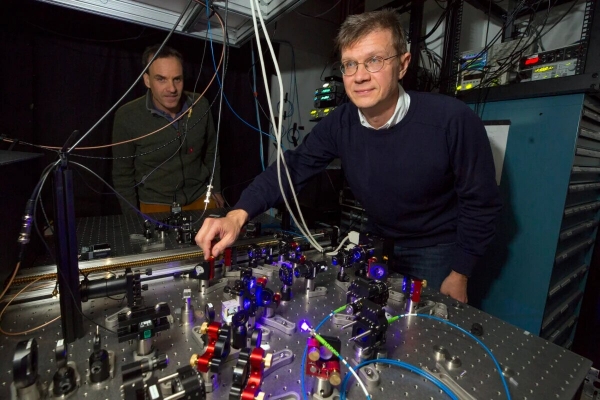Harvard team’s method of reducing errors tackles major barrier to scaling up technology.
Quantum computers promise to reach speeds and efficiencies impossible for even the fastest supercomputers of today. Yet the technology hasn’t seen much scale-up and commercialization largely due to its inability to self-correct. Quantum computers, unlike classical ones, cannot correct errors by copying encoded data over and over. Scientists had to find another way.
Now, a new paper in Nature illustrates a Harvard quantum computing platform’s potential to solve the longstanding problem known as quantum error correction.
Leading the Harvard team is quantum optics expert Mikhail Lukin, the Joshua and Beth Friedman University Professor in physics and co-director of the Harvard Quantum Initiative. The work reported in Nature was a collaboration among Harvard, MIT, and Boston-based QuEra Computing. Also involved was the group of Markus Greiner, the George Vasmer Leverett Professor of Physics.
Read more at Harvard University
Image: Harvard physicists Mikhail Lukin (foreground) and Markus Greiner work with a quantum simulator. (File photo by Jon Chase/Harvard Staff Photographer)


